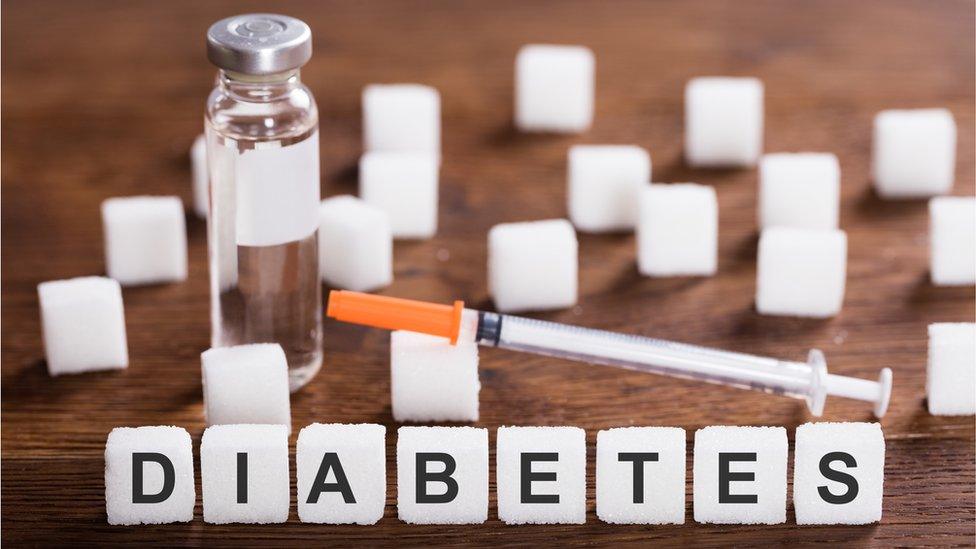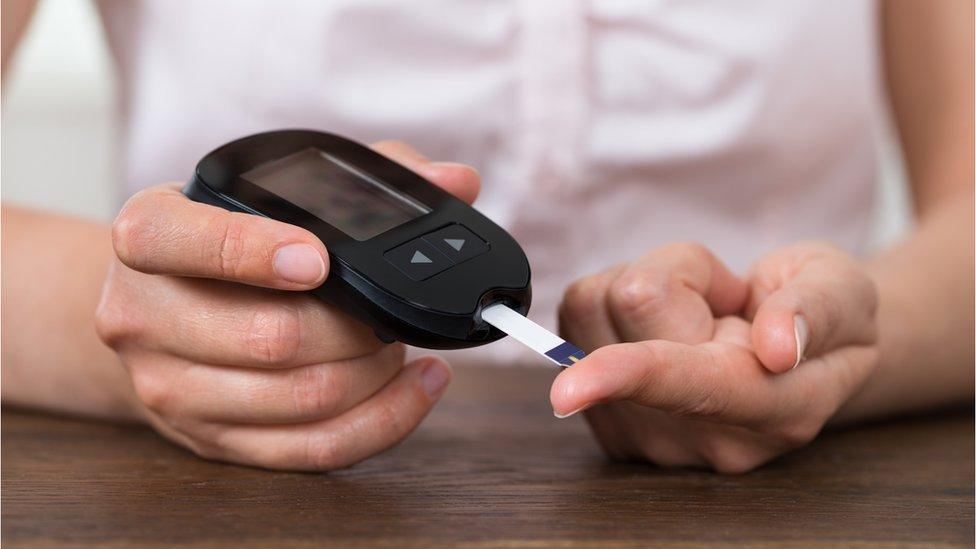'Opportunity missed' to improve type 2 diabetes care
- Published
- comments

More than £1m is spent on diabetes care every day in Northern Ireland
A clear opportunity has been missed to improve care for people living with type 2 diabetes in Northern Ireland, according to a new report.
The Northern Ireland Audit Office points out that there is no regional screening programme to identify people at high risk of developing the disease.
It highlights the Department of Health's failure to implement a 2003 review fully.
It says a strategy to deal with the condition was only introduced in 2016.
This meant chances to stem the growing numbers of people developing Diabetes 2 were missed, said the report.
It also notes that despite identifying significant staffing shortfalls in 2003, that remains a problem 15 years later.
The absence of an audit committee at Stormont means there will be no political debate on this report.
However, it will be considered by officials at the Department of Health.
Diabetes has been described as a ticking time bomb for the health service, with an estimated 100,000 people in Northern Ireland expected to have the condition by 2020.
Type 2 - which is heavily linked to lifestyle - accounts for almost 90% of cases in Northern Ireland.
The report's authors say a prolonged delay in implementing a dedicated strategy has only fuelled the number of patients.
The development of high quality services has also been slow and there are not enough specialists available to cope with demand.
While there has been a human cost to all this, there has been a financial one too.
£1m every day
Local treatment costs for diabetes are estimated at £400m annually, but that could rise by 17% by 2035. This represents 10% of the local health and social care budget.
In more blunt terms, more than £1m is spent on diabetes care every day in Northern Ireland.
There are also an estimated 13,000 cases of undiagnosed diabetes.
The report makes a number of recommendations including:
The department should explore the feasibility of establishing a model for measuring and managing future treatment costs;
Robust monitoring and review to ensure full implementation of the 2016 Diabetes Strategic Framework;
Improving access to information for the public to be better informed;
The department should ensure there is no slippage in producing the proposed workforce plan by 2019, including appointing a clinical lead for local diabetes care.
In an attempt to tackle the problem, the Department of Health set up the Diabetes Network for Northern Ireland in 2016.
It brings together people living with diabetes, carers and professionals from health and social care organisations.
They work in partnership with Diabetes UK to improve care for those living with all types of diabetes.
The network is still in shadow form but a number of new service developments are expected this year.
A clinical director will be appointed with support from a local GP and a lay representative.
The network seeks to prevent those in high risk groups from developing type 2 diabetes.
- Published27 February 2018

- Published2 March 2018

- Published5 December 2017
